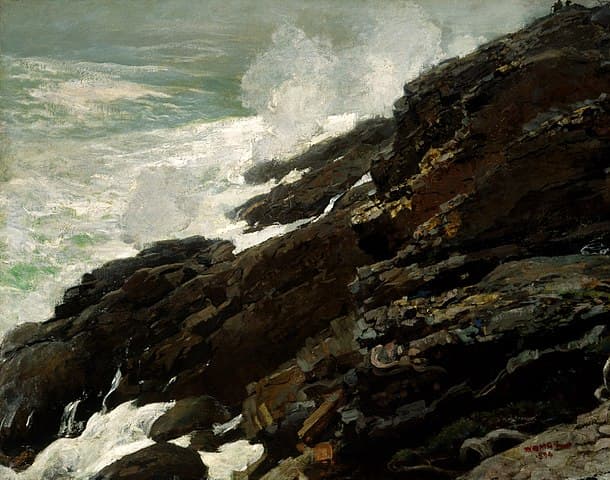Poem of the Day: ‘Break, Break, Break’
Tennyson’s poem emphasizes the movement of time, a one-way current carrying human lives with it into darkness, while in the background beats the endless cyclical motion of the sea.

England’s longest-serving poet laureate, Alfred, Lord Tennyson (1809–1892), filled that post from Wordsworth’s death in 1850 until his own, nearly half a century later. Tennyson stands as the archetype of laureates, able to render — seemingly without effort — into memorable yet accessible verse the imagination of an entire era. In Tennyson we find the whole range of Victorian concerns, from the neo-medievalism that gave rise to both St. Pancras railway station and Tennyson’s epic “Idylls of the King,” to the cultural preoccupation with grief epitomized in Queen Victoria’s long mourning for the prince consort, Albert. Certainly two kinds of grief, for a particular personal loss and for the passing of a few irretrievable golden hours, inform today’s poem, “Break, Break, Break.” Variations in the ballad meter, the stark accents of Break, break, break contrasting with the anapestic and iambic fluidity of the rest of the poem, emphasize the movement of time, a one-way current carrying human lives with it into darkness, while in the background beats the endless cyclical motion of the sea.
Break, Break, Break
by Alfred. Lord Tennyson
Break, break, break,
On thy cold gray stones, O sea!
And I would that my tongue could utter
The thoughts that arise in me.
O, well for the fisherman’s boy,
That he shouts with his sister at play!
O, well for the sailor lad,
That he sings in his boat on the bay!
And the stately ships go on
To their haven under the hill;
But O for the touch of a vanished hand,
And the sound of a voice that is still!
Break, break, break,
At the foot of thy crags, O sea!
But the tender grace of a day that is dead
Will never come back to me.
___________________________________________
With “Poem of the Day,” The New York Sun offers a daily portion of verse selected by Joseph Bottum with the help of the North Carolina poet Sally Thomas, the Sun’s associate poetry editor. Tied to the day, or the season, or just individual taste, the poems will be typically drawn from the lesser-known portion of the history of English verse. In the coming months we will be reaching out to contemporary poets for examples of current, primarily formalist work, to show that poetry can still serve as a delight to the ear, an instruction to the mind, and a tonic for the soul.
